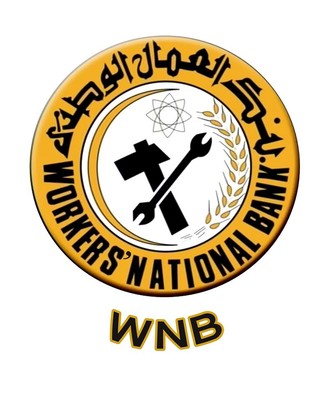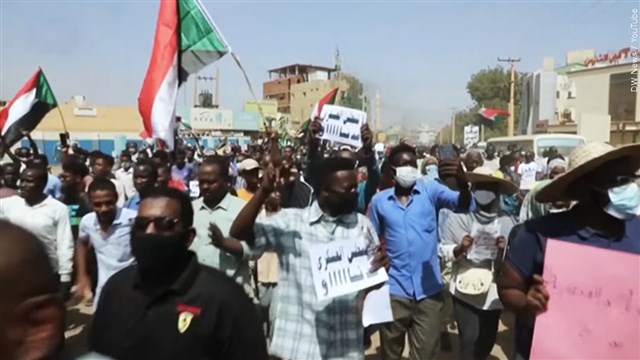Prices on the streets of Sudan have skyrocketed, and with few dollars in circulation, it’s difficult not to go without.

On top of the country’s economic instability are political tensions—conditions highlighted by Sudan’s military coup and a subsequent “Million Man March” protest with hundreds of thousands of demonstrators.
Sudan’s economy has been and continues to be, despite the recent visit by World Bank head David Malpass, in a deep crisis.
Sudan suffers from high inflation, shortages of food, fuel and medicine, reported the BBC. The coup, according to published reports, has alarmed many international powers who have only recently forged relations with Sudan after years of isolation.
To add to this downward spiral, according to The Guardian, Sudan has been hit by a severe cash shortage as most banks and cash machines remained closed a week after the military coup prompted a nationwide strike by bankers.
About 90 percent of bankers took part in the civil disobedience campaign, said Ibrahim Abdel-Raheem, who works at the Workers National Bank in Sudan’s capital city, Khartoum. “We knew that going on strike as bankers would cripple the economy,” he said. “Banks are the backbone of the economy.”
The Sudanese Bankers Association has said it will stage protests in front of banks across the country in a “revolutionary escalation” of its campaign. Mentioning how the action affected him personally, Abdel-Rahman added, “I had to give up many things.” “I don’t even have one pound in my pocket. I am only buying the very basic things because I have no cash,” he said.
“Yassir Binawai, a 46-year-old who works in the mining industry in northern Sudan, said that he had to borrow money from his employer’s canteen to buy food. ‘It’s been so difficult to manage with the cash shortage,’ ” he said. “But we will not give up despite all the struggles,” Binawai told the UK-based Guardian.
And if things were not bad enough, cash remittances, which were king, were eliminated. Western Union “due to the military coup,” got sanctified and “suspended its (Sudan) services.” Many, including this writer, whose family in Sudan depends on remittances via Western Union, wondered why punish Joe Public, who in many cases depends on money from family members living abroad?
A Financial Times report was headlined “Remittances: the hidden engine of globalization.”

When discussing economic downturns, natural disasters or in Sudan’s case a political crisis, brought on by a military coup, “private capital tends to leave and even official aid is hard to administer,” said Mr. Dilip Ratha, head of the World Bank’s global knowledge partnership on migration and development. “Remittances are the first form of help to arrive, and they keep rising,” he explained.
“Remittance inflows help boost countries’ balance of payments and therefore their credit ratings, lowering the borrowing costs of governments, companies and households. In the Philippines, for example, (2019) remittances inflows of $34bn will help reduce what would otherwise be a current account deficit of more than 10 percent of gross domestic product to a deficit of just 1.5 percent of GDP,” he added.
Western Union, which said it would resume operations when it’s “safe to do so,” as of this writing had resumed services in Sudan.
Sudan’s annual inflation rate eased for the second straight month to 365.8 percent in September 2021, from 387.6 percent in August and a record high of 423 percent in July.
The decline was mainly attributed to stability in the country’s exchange rate following a devaluation of Sudan’s currency earlier in the year as well as lower prices for essential food items reported, Sudan’s Central Bureau of Statistics. This was followed by a shortage of bread caused by the blockage of roads and products, including wheat, essential medicine, and fuel by members of eastern Sudan’s Beja tribes. Sudan’s Central Bureau of Statistics also reported this past summer about the raising of fuel prices by fully lifting fuel subsidies. The Beja tribe recently removed a roadblock of essentials headed to Khartoum.
As Sudan’s economy continuously contracts and reacts to the politics of the moment, the latest proposal on the table would see ousted Prime Minister Abdulla Hamdok, who is under house arrest, given greater powers “but with a new cabinet more palatable to the army, diplomats said, requesting anonymity because they are not authorized to speak to the media,” reported Al Jazeera.
The army, in control for much of Sudan’s history since independence in 1956, would be in charge of the government’s powerful security and defense councils under the new deal, the report said.
The formation of a new Sovereign Council, the top executive body headed by a coup leader, at this writing was still being discussed.
U.S. special envoy for the Horn of Africa Jeffrey Feltman, in a second trip to Khartoum in one week, said the army knows support for Sudan’s economic development and debt relief, as well as World Bank and International Monetary Fund financing, depends on restoring the path to democracy.
Most agree that Sovereign Council chair Abdel Fattah al-Burhan and Mohamad Hamdan Dagalo’s (also known as Hemedti) military coup was a preemptive strike aimed at Nov. 17 when they were scheduled to relinquish Sovereign Council authority to a civilian government.
According to Middle East Eye, at the same time U.S. and Emirati (UAE) officials were in talks to find a settlement for the Sudan crisis, it appeared both were negotiating on Burhan’s behalf, “reflecting their significant role in supporting his coup against a civilian government.”
Why hasn’t the civilian side of the transitional government and the people marching in the streets of Sudan, who appear willing to suffer the economics of their liberation struggle, defined unity and uprooted a military and a non-military militia composed of thugs and guns for hire, more interested in lining their corrupt pockets, than in defending the interests of the Sudanese people?
You have a non-military militia “effectively” being “legitimized” in a “constitutional document” that has given Rapid Support Force head Dagalo legitimacy as the deputy head of the Sovereign Council, and the freedom, without reprisal, to hold a “monopoly” on escalating violence, said Abdelwahab El-Affendi, professor of politics at the Doha Institute for Graduate Studies.
“It is a riddle to conceive a democracy in the presence of a tribal militia that is a state within a state,” he said.
Follow @jehronmuhammad on Twitter.













